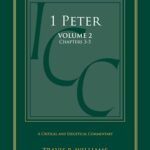A Down Payment on a Good Home
It is that time of year here in Michigan when you begin to see yard sales cropping up around your neighborhood. When I decide to sell something, I have become more fond of the online methods that eliminate the unpleasant experience of moving things from your yard where they did not sell back into your house or garage. However, whether you sell items this summer using social media or the more traditional methods, you will likely run into a situation where someone asks you to hold an item until they can come up with the entire purchase price. If this occurs and the item is something you really want to sell, you may want to consider asking the prospective buyer to put down a down payment towards the final price as a guarantee that he intends to return and pay the full amount. The larger the down payment, the more confidence you can have that he will return for the item. But of course, according to the normal custom, the down payment will be deducted from the final price.
In Ephesians 1:14, the Apostle Paul uses the practice of putting down a down payment to guarantee an eventual purchase when he describes the Holy Spirit as the believer’s “down payment of our inheritance” (CSB) or “deposit guaranteeing our inheritance” (NIV). Then, as is common now, the “down payment” was an installment of the final price.[1] So, the Spirit not only guarantees our inheritance, but he also is a portion of the inheritance—a portion that all believers receive in advance of their physical entrance into the Messiah’s everlasting kingdom. Our Lord, and later his Apostles, frequently referred to his kingdom as our inheritance (e.g., Matt 5:5 [cf. 5:10]; 25:34; James 2:5). Since this final home of the believer will be a kingdom that lasts forever (cf. Is 9:7; Dan 2:44; 7:14), our Lord Jesus could also refer to it as inheriting eternal life (Matt 19:29; cf. Luke 18:18; Titus 3:7). The presence of the Spirit is not only a sure mark or seal that we belong to God (Eph 1:13) but also that God has also given to us, most of whom are Gentiles, a key blessing of that kingdom—the Spirit promised to Israel in the eschaton. The down payment guarantees that God will claim his possession—us who are his people (Eph 1:14b). And what could be a more valuable down payment than God himself in the Person of the Spirit?
It is worth noting that Paul says that the Spirit performs this great ministry for all believers—everyone who has believed the gospel and been included “in Christ” (Eph 1:13). From time to time, you still hear the argument that while all believers will enter Jesus’ kingdom, only some believers will inherit the kingdom. This interpretation attempts to explain passages that warn those who persist in sin that they will not inherit the kingdom (e.g., 1 Cor 6:9; Gal 5:21; Eph 5:5). Since these passages seem to be addressed to those within churches, it is argued that the addressees must be believers and thus the inheritance must be something greater than the eternal reward that all believers receive. However, not only does this interpretation conflict with what Paul says here about the Spirit’s role as the guarantee that we will receive our inheritance, but it also minimizes what the New Testament teaches about the Spirit’s ongoing work in the life of a believer. How could the Spirit serve as a guarantee if not by demonstrating his presence through his work (cf. John 3:8)? Not only does the Spirit cause us to believe the gospel message about the Son, but he also is the means by which the believer is putting to death sinful deeds (Rom 8:13). The Spirit has made us new people. We are not yet what we will be (otherwise, there would be no need to be putting to death sinful deeds), but because of the Spirit’s regenerating work, we are not what we once were (cf. Eph 2:1–3). Paul regularly warns those who persist in sin because they demonstrate that the sanctifying work of the Spirit is absent from their lives. And without the Spirit as their down payment, they should have no confidence in their final redemption. But when Paul hears of believers who have faith in the Lord Jesus and love God’s people, he gives thanks for them (Eph 1:15–16) because the Spirit is at work in them, and the Spirit guarantees that they will inherit the kingdom. He is already part of the final reward. There is no middle or third option—either you will inherit “the kingdom prepared for you since the creation of the world” (Matt 25:34, NIV), or you will enter “eternal fire prepared for the devil and his angels” (Matt 25:41; NIV).
In a beautiful passage, Isaiah tells the people of Israel that the believing among them will one day see Jerusalem as “a peaceful abode, a tent that will not be moved; its stakes will never be pulled up, nor any of its ropes broken” (33:20, NIV). All of us who trust in Israel’s Messiah will one day share in this inheritance—a home, a good place from where we will never have to pack up and leave. We will graciously inherit a world made new. And we have the greatest down payment possible, guaranteeing that this will all come true.
[1]The Greek phrase used by Paul is ἀρραβὼν τῆς κληρονομίας ἡμῶν. The head noun ἀρραβὼν refers to a “payment of part of a purchase price in advance” (BDAG, 134). Since this noun refers to a portion of something (i.e., something that can be counted), the lexical and grammatical evidence work together to indicate that τῆς κληρονομίας is likely a partitive genitive, where the head noun is a part or portion of the noun in the genitive, which in this case is “our inheritance.”



